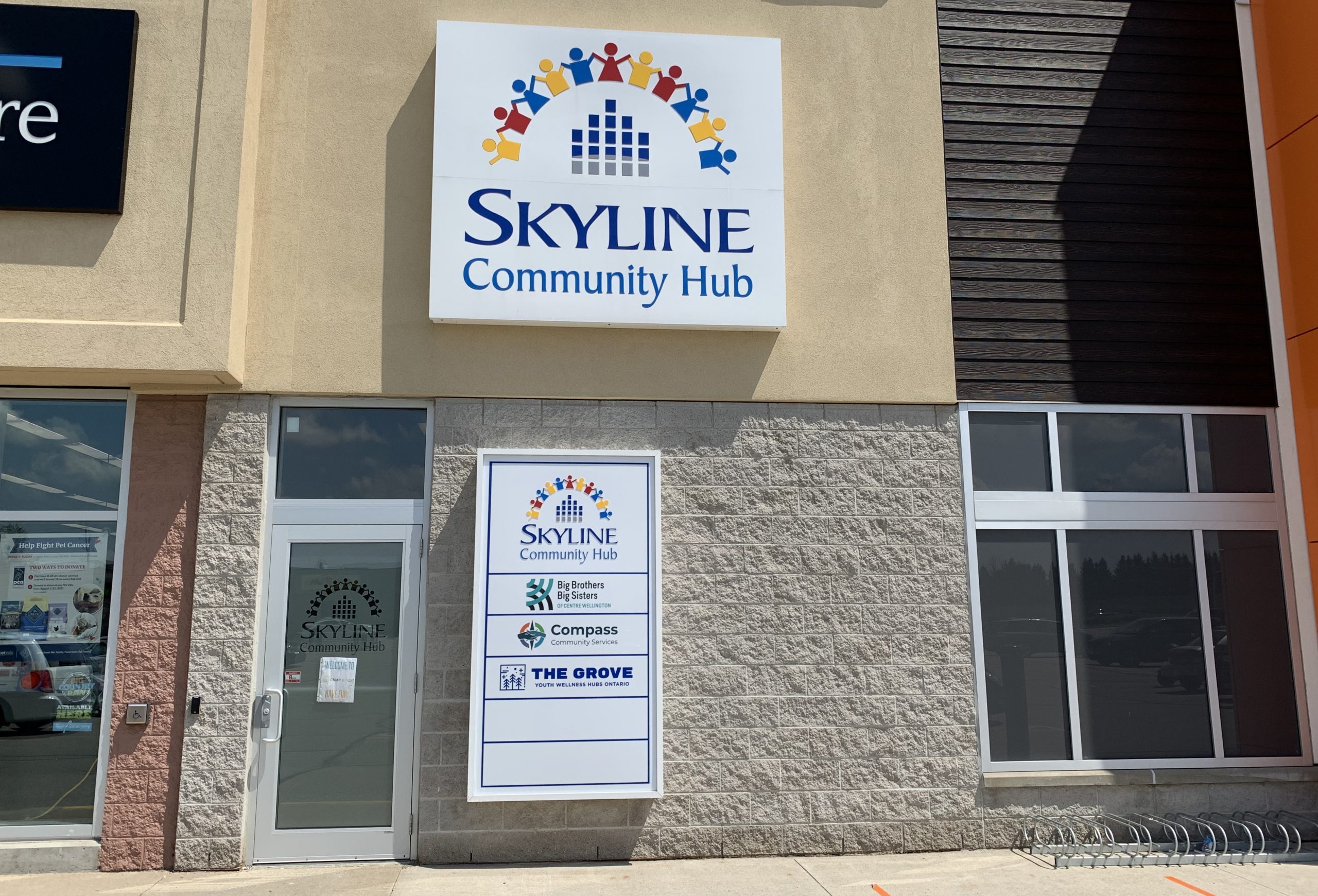FERGUS – The Grove youth hub is not just a place to help young people.
The new youth centre opened its doors to parents on Nov. 23 for a workshop entitled “How to have difficult conversations in a real way.”
The workshop was the first of a five-part series The Grove is offering to parents in the coming weeks, an initiative spearheaded by the Family Engagement Working Group in response to the assault in October of a transgender student at Centre Wellington District High School and the subsequent arrest of another student charged with assault with a weapon.
There have also been many teen suicides in Wellington County in recent years as well as reports of racism in the county – all of which add to the so-called “normal” challenges of raising a child, such as grief, divorce, drugs, bullying, sex, etc.…
It’s a long list of life lessons and circumstances that can prompt difficult conversations.
“There’s a lot of strife, a lot of challenges, a lot of pain in the community,” said Barbara Lustgarten Evoy, choosing her words carefully.
“This group is very concerned about that. We want to bump it up. We want to offer a service.”
Lustgarten Evoy is an author, educator, a trustee at the Upper Grand District School Board, a professional mediator and host of YourTV’s Parenting with Barbara.
At this meeting she was joined by fellow speaker Molly Handsaeme, a youth outreach worker.
“We want to help caregivers help youth,” Lustgarten Evoy said as the session got going. “We want to help your child.”
The two big take-away messages for the 20 participants were: set the stage for open communication in the household, and listen, don’t lecture.
The time to raise important issues with your child is when you are in a calm, controlled frame of mind and are prepared to listen, Handsaeme said.
She drew three cloud shapes on a board and called them the emotional mind, the logical mind and the wise mind.
The emotional mind is easy to understand. When you are angry or upset about something is not the time to talk to your child, she said.
And while it helps to be logical and get the facts straight, “the logical mind is not always sympathetic,” she said.
That’s why the wise mind – that sweet spot in the middle – is where you want to be when broaching difficult topics with kids.
You will be calm enough to hear what your kids are telling you, savvy enough to discern fact from fiction, and compassionate enough to understand that kids – even teenagers – are not yet fully-developed adults.
Handsaeme called this mindfulness; not thinking about past transgressions or future “what ifs” but focusing on now and the next 60 seconds.
“It’s the opposite of autopilot,” she said. “The end goal is to have open and real conversations. So focus on the next 60 seconds, be non-judgemental, and listen to hear, not to respond.
“To have an effective conversation, you want a dynamic that’s open, where youth want to come to you.”
Lustgarten Evoy talked about “setting the stage” for meaningful conversations with your children by having short, non-threatening conversations.
Go into their room, sit on their bed, and tell an amusing story – an anecdote from work, a funny conversation at the grocery store or some other oddity – then leave.
Do it every day.
“If they engage back, make all the time in the world. But otherwise, keep it short and sweet and nothing serious,” Lustgarten Evoy said.
Over time, the larger message may sink in that it’s possible to have pleasant conversations with your parents, that mom and dad have a sense of humour, and that maybe they would be open to hearing about a problem.
When you do start that tough conversation, edit the details you share with your kids.
“Children don’t need all the details about your problems,” she said.
“It’s about containing your emotions. Kids don’t need your stuff on their plates.”
If they do reach out with a problem, try to be available in that moment, Lustgarten Evoy said. Making them wait even 10 minutes could mean the opportunity has passed.
And if you feel ready to broach a subject, make sure your child is in the right frame of mind as well. Half-way through a movie is likely not the time, but out walking the dog just might be.
“Nobody knows your children better than you. Know that; hang on to that,” she said.
Cyndy Forsyth, director of The Grove Youth Hubs, said the next session on Dec. 7 is about the adolescent brain and what teenagers are capable and not capable of processing.
“We want to provide a complement to what the school board is doing,” she said.
“Parents need support as they are supporting their children. (Parenting) has never been an easy job and it certainly isn’t right now.”
Upcoming events at The Grove include:
- Nov. 30, 4 to 8pm – Community open house at The Grove, 900 Tower St. S., Fergus. This is an opportunity for grandparents, parents, caregivers and siblings to visit, meet the team and see all that is offered. No registration is required;
- Dec. 7, 7 to 9pm – Second workshop in speaker series. Topic: the adolescent brain. Register by emailing hello@thegrovehubs.ca; and
- Dec. 21, 7pm – Third workshop in speaker series. Topic: mindfulness, emotional and self awareness. Register by emailing hello@thegrovehubs.ca.




